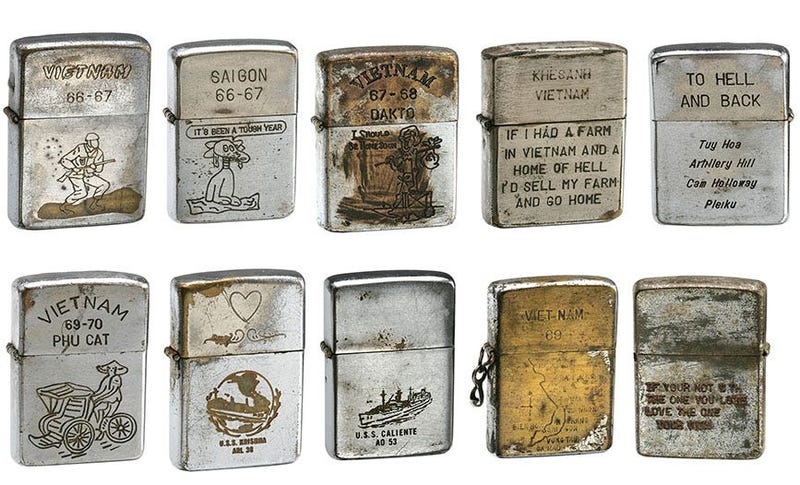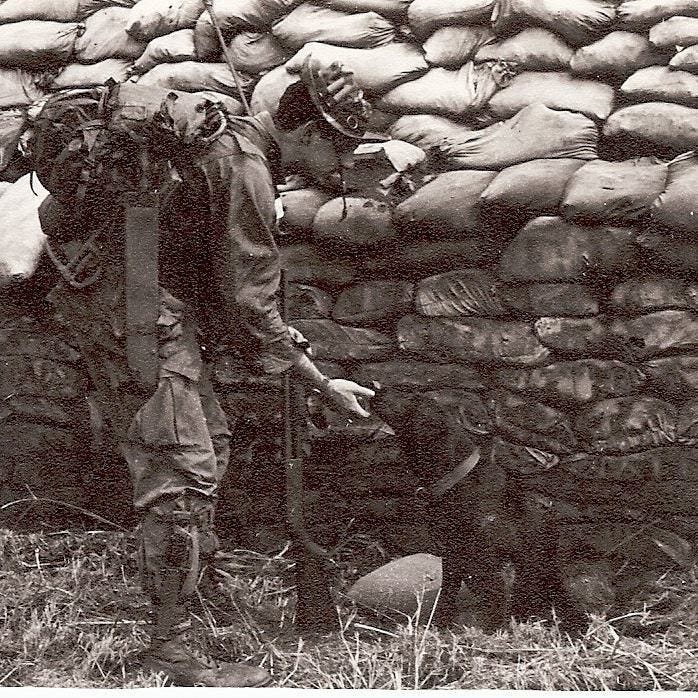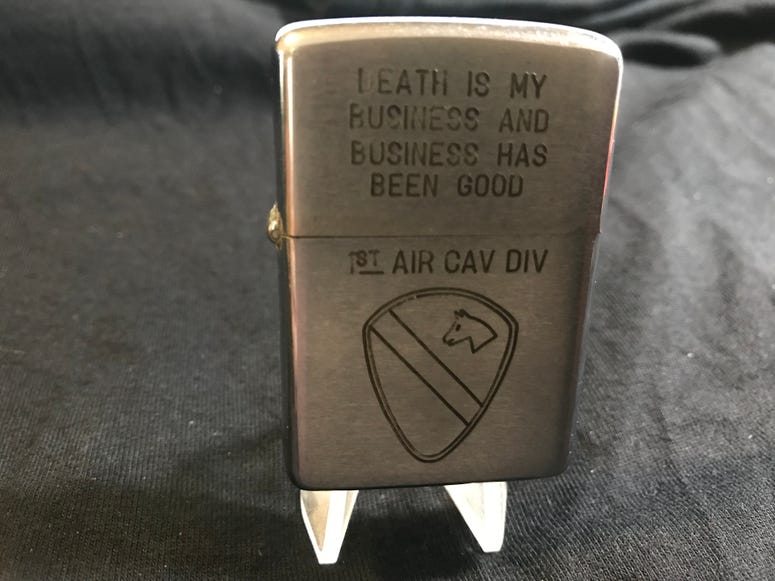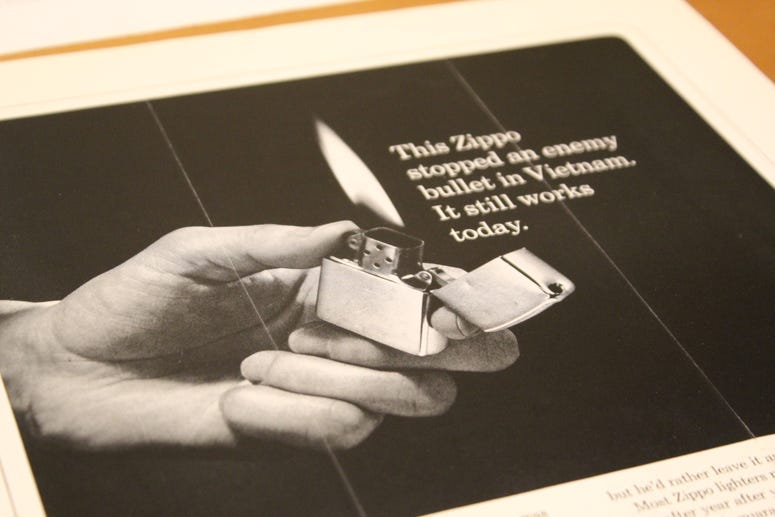
“Live by chance. Love by choice. Kill by profession.”
It sounds like a crude bumper sticker slogan but this phrase was in fact engraved onto Grant Coates’ Zippo lighter before he went to Vietnam. Coates’ lighter is one of the thousands that Vietnam veterans bought and kept on their person during the war.
The Zippo lighter was created in the 1930s by George Blaisdell who had a vision for a lighter that could be used with one hand and in the windiest of conditions.
“They call it a windproof lighter because it's designed with a chimney of sorts ... if you’re in the U.S. Navy and you’re aboard a ship with various winds about you can light your cigarette. If you’re in a moving vehicle, say a Jeep that’s open, you can light your cigarette,” said Frank Blazich, lead curator of military history at the National Museum of American History.
With its virtually indestructible design, reusability, and a lifetime guarantee, the Zippo became standard for troops during World War II, so much that, in the 1940s, the company dedicated all of its production to the U.S. military.
“We make our lighters from brass and during World War II, brass was rationed so we made them from steel. The steel rusted and we had to use a different kind of finish to prevent the lighters from rusting,” said Shirley Evers, archives manager for Zippo Manufacturing Company. “What we learned later is that this type of finish made it very easy for the soldiers to customize the lighters themselves and that was the first kind of trench art."
After the war was over, the company continued selling lighters to civilian customers. However, the environment of Vietnam proved to be different than Europe and Zippo saw an uptick in the interest from the generation of warfighters.
“It’s a war where the American service members had the ability to go to towns, especially since we’re in South Vietnam, to go to Saigon, to go to Huế, to go to Da Nang, to any of these larger communities. They’re always gonna find a street vendor or someone who can engrave it for you,” said Blazich.
Previously engraving unit insignias or one’s rank was common practice, but when the U.S. military sent troops to Vietnam, troops became more creative with annotating their Zippos. Coates and his friend, like many other soldiers, bought theirs at a post exchange and chose from a set of premade sayings.


“If I had a farm in Vietnam and a home of hell I’d see my farm and go home.”
“If I should die, bury me face down so the world can kiss my a**.”
“Yea though I walk through the valley of the shadow of death I fear no evil for I’m the evilest son of a b**** in the valley.”
Along with maps of towns or political war-related statements, these types of phrases became a distinctive piece of culture for Vietnam-era service members.
Coates, who is also the chair of the POW-MIA Committee for Vietnam veterans of American explained that before butane and Bic was popular, the Zippo served more purposes than just lighting the cigarettes of the tired and weary.

“It had alcohol in the lighter fluid and that lighter fluid formula was one of the things that would make a leech open its mouth,” he said.
Water and land leeches were often found in areas like the Mekong Delta as well as swamps and paddies where there was heavy vegetation.
“The standard would be one person dropping his pants and pulling his shirt open and his buddy is checking the first guy where he cannot see,” Coates explained. “If a leech is found on the body or he clamped on, the Zippo lighter gets opened, the cotton composite inside that holding the fluid is pulled out and that’s used to dab the head of the leech.”
The lighters also became popular on search and destroy missions. Known as “Zippo raids,” troops would set fire to huts of suspected enemy forces or ignite napalm from M-132s and M-762s if the electronic ignition failed.
Today, the company still holds the same promise: “If any Zippo lighter ever fails to work, we’ll fix it for free.” From serving as collectors’ items to being functional for everyday use, the Zippo remains a relic for many Vietnam veterans of a more poignant time.
